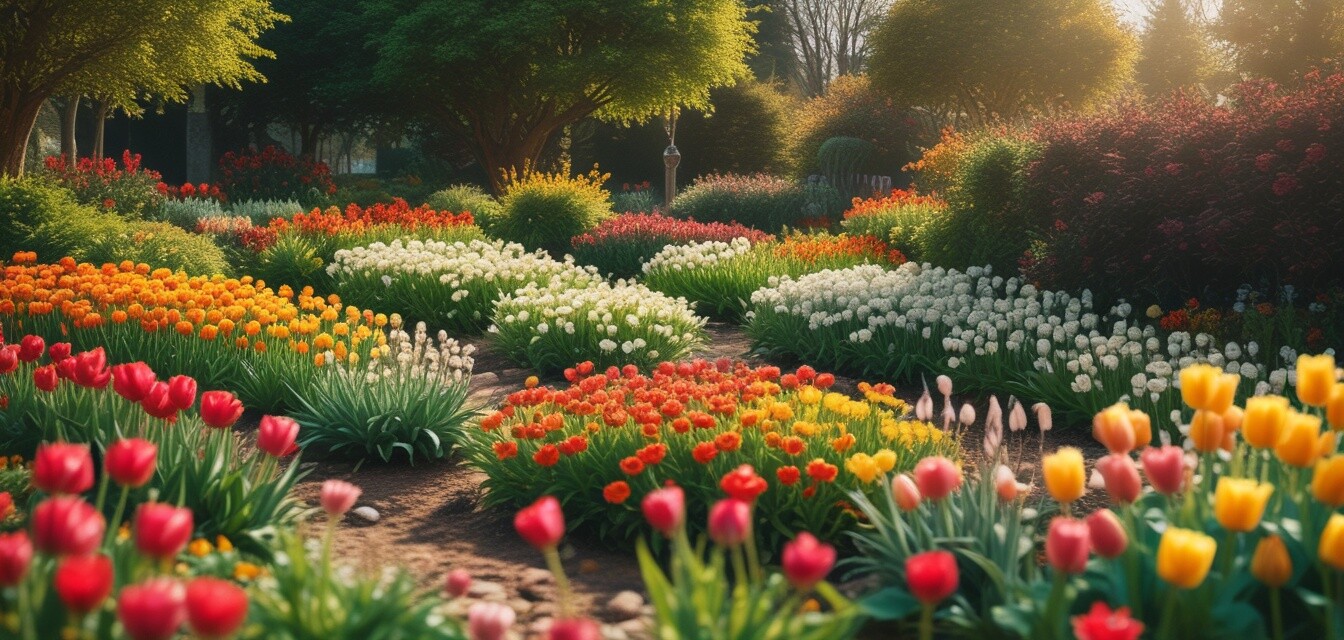
Seasonal Garden Color Palettes
- Embrace colors of each season for a vibrant garden year-round.
- Mix and match plants that complement each other to enhance your garden's appeal.
- Consider seasonal blooms and foliage for dynamic visual impact.
- Use design themes to create a harmonious outdoor space.
When it comes to gardening, color is key. Seasonal color palettes not only bring vibrancy but also reflect the beauty of nature throughout the year. By understanding the hues that dominate each season, you can create a stunning and dynamic landscape that inspires and rejuvenates your outdoor space.
Understanding Seasonal Color Palettes
Color palettes change with the seasons, and each offers unique hues that can influence the mood and style of your garden. Here’s a quick overview of what you can expect in each season:
| Season | Color Highlights | Plants to Consider |
|---|---|---|
| Spring | Bright pastels, soft shades | tulips, daffodils, hyacinths |
| Summer | Bold, vibrant colors | sunflowers, zinnias, marigolds |
| Autumn | Warm, rich tones | chrysanthemums, asters, ornamental grasses |
| Winter | Cool, muted colors | evergreens, winterberry, hellebores |
Spring Palette
Spring is a time of renewal and growth. During this season, your garden can reflect the joyous awakening of nature with soft pastels that soothe the eyes.
Pros
- Brings a feeling of freshness to your outdoor space.
- Encourages growth and vitality with early blooms.
- Creates an inviting atmosphere for gatherings.
Cons
- May require more maintenance as plants bloom.
- Risk of frost damage to delicate flowers.
Summer Palette
Summer gardens can be made vibrant with bold colors that reflect the warmth and liveliness of the season. Bright yellows, fiery oranges, and deep reds create a stunning display.
Autumn Palette
Autumn is the season of harvest and transition. With rich reds, oranges, and yellows, your garden can embody the changing leaves and the warmth of home. Choosing plants with varying textures and colors can add depth.
Autumn Plant Recommendations
- Chrysanthemums
- Asters
- Ornamental Grasses
Winter Palette
Winter may seem challenging for color in the garden, but using cool tones can create a beautiful winter wonderland. Evergreens provide structure, while colorful berries and unique foliage can intrigue the eye even in the cold.
Tips for Winter Gardens
- Incorporate evergreen plants for year-round structure.
- Add winter-blooming plants such as hellebores for unique colors.
- Use garden ornaments to enhance visual interest during colder months.
Creating a Cohesive Theme
Once you have a grasp of seasonal colors, it’s essential to create a cohesive theme throughout your garden. Here are some strategies:
- Choose a dominant color for each season and select complementary plants.
- Use hardscaping like paths, patios, and walls to tie different areas together.
- Incorporate garden furniture that complements the seasonal colors.
Conclusion
Incorporating seasonal color palettes into your garden can transform your outdoor space into a visual masterpiece. Each season offers a unique opportunity to showcase different hues, textures, and inspirations. Experience the joy of gardening by embracing these vibrant seasonal colors and let nature inspire your design. Explore more ideas and tips in our Garden Inspiration category.